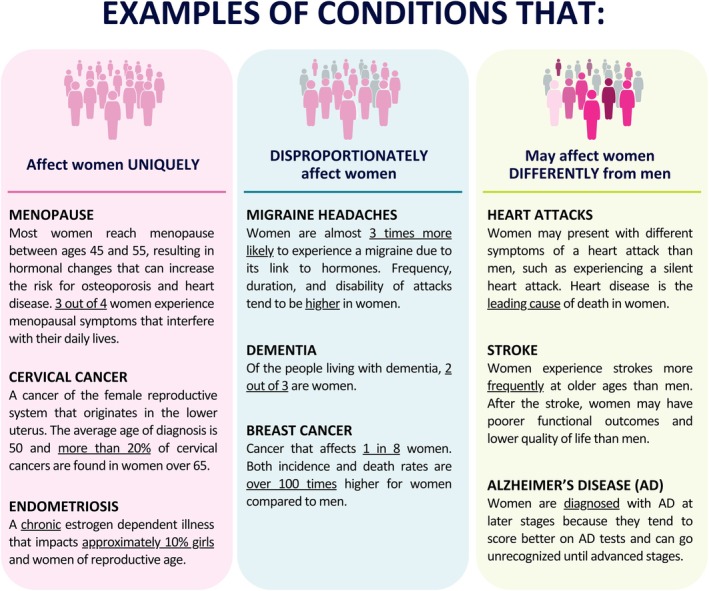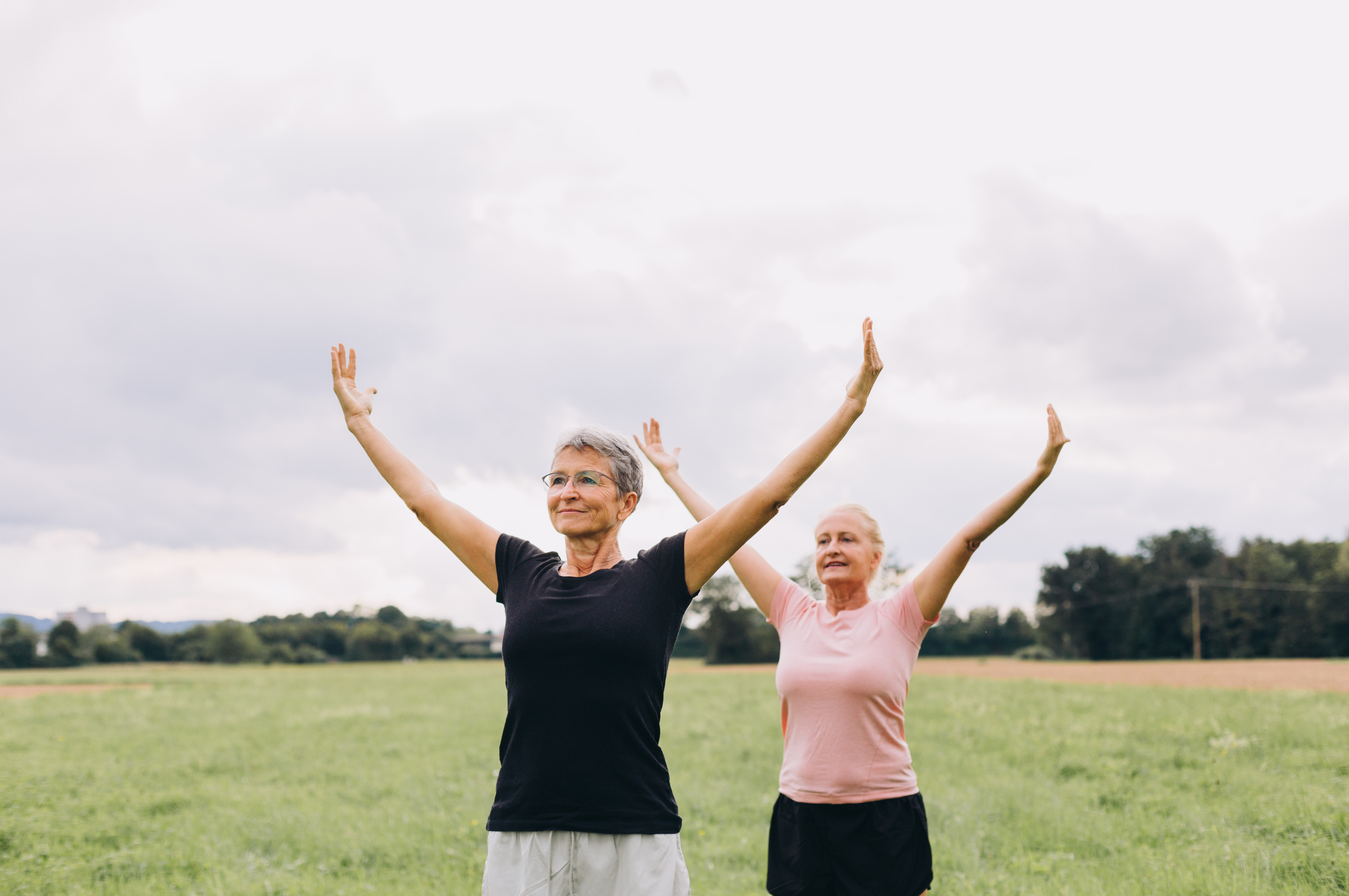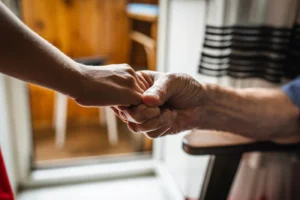Older adults now represent more than a billion people worldwide, and the majority are women. The number of older adults in Canada aged 65 years and older exceeds younger people, under 14 years of age, yet the health and social needs of older adults, particularly older women, remain largely underrecognized and unmet. The one‐size‐fits‐all approach to the study of aging, where age categories, sex, and gender‐related sociocultural factors including socioeconomic status are not incorporated, is inadequate. As a result, older women and their unique health and social needs remain largely invisible.
Women’s Age Lab at Women’s College Hospital, a research center focused on improving the health and wellbeing of older women, released a timely report “Women at the Forefront of Aging in Canada” to address this research gap. This report brings attention to the health and well‐being challenges women encounter as they age, while also emphasizing their unique needs to ensure they are more effectively recognized and addressed.
Understanding the needs of older women and men through research equips geriatricians in providing tailored care for older adults, but this has not always been the case. For example, women experience more adverse drug events than men and adverse events increase with age. Yet, it was not until the 1990s that the National Institutes of Health mandated the inclusion of women in studies they funded and not until more recently the inclusion of older adults. This early lack of inclusion of older women in clinical trials resulted in some drug therapies being manufactured at doses too high for them, increasing the potential for harm.
Although the importance of having information about older women available to clinicians caring for older adults may seem obvious, examples of these differences are difficult to obtain. Figure 1 provides examples of some health conditions that affect women uniquely, like menopause, disproportionately, like dementia, or differently like heart attacks. Further research is needed to identify conditions where sex, gender, and age differences exist to better inform clinical management. When we focus on older women we also learn about older men, improving health for all.

Even when older adults are included in research studies, lack of routine reporting of existing sex and age‐disaggregated data reduces the full value of available data on older women. Ensuring that sex and age‐disaggregated data are reported needs to be a standard of practice for health researchers. Geriatricians can also play an important part in advocating for the importance of learning about the unique health and social needs of older women and applying this information in clinical practice.
Gendered ageism is a thread that runs through the root causes of the issues facing older women. It appears across society, whether self‐directed, interpersonally, or institutionally, and drives many of the sociocultural barriers’ older women face. This includes impacting their ability to safely age in their own homes due to socioeconomic factors such as the pension gap and further contributes to social isolation. Combatting gendered ageism is crucial to effectively addressing the underlying challenges faced by older women.
Although the examples provided in the Women at the Forefront of Aging in Canada report may not be novel, the report is unique in bringing the information together to show their cumulative impact on women’s health with age. This report highlights these challenges and how they can have magnified implications within healthcare practice. It advances knowledge through evidence‐based research and provides practical recommendations to address existing gaps in the field. Given the extensive range of challenges experienced by older women, this report provides a starting point but there are limitations. The intersection of these challenges with race and other gender‐related sociocultural factors must be addressed by researchers, health providers, and policymakers. Second, gender‐related health gaps resulting from challenges that have historically occurred earlier in women’s lives and accumulate over time, such as fewer educational opportunities, make applying a life‐course approach important. Ongoing research should consider the impact of all life stages on the health of older women to enable effective and practical interventions.
Through collaborative efforts across disciplines, we can better address the gaps facing older women nationally and globally. Researchers in aging and those who provide care can play an important role in improving the lives of our fastest growing population. The hope through this report is that others also develop their own analyses on the status of older women in their jurisdictions and take action to improve their health and well‐being.




